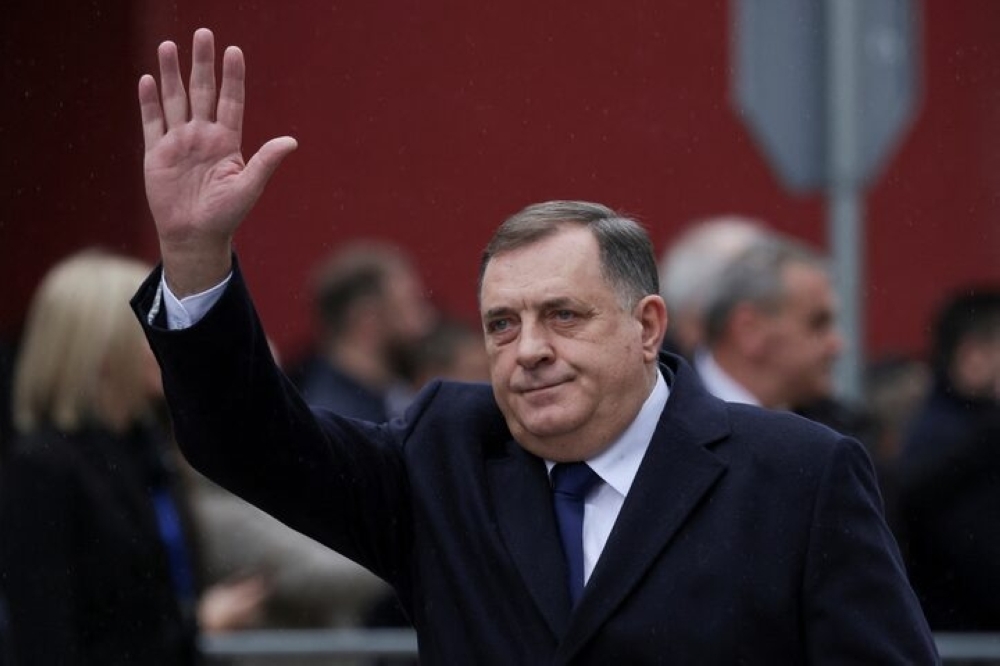

The recent sentencing of Milorad Dodik, the leader of Republika Srpska (RS), to a year in prison and a six-year ban from public office has seriously shaken Bosnia’s already fragile political system. A seasoned provocateur, Dodik has built his career on defying state institutions and pushing for secession. For more than two decades, he has chipped away at Bosnia’s tenuous postwar consensus. Though his legal defeat might seem like a win for the rule of law, it could ultimately deepen the instability that has long haunted the country’s peace. Since the verdict, Dodik has disregarded summonses, travelled to Serbia and Israel, and cheekily challenged the authorities to arrest him - and this has compelled Bosnia's state court to put out an international warrant. His defiance could spark armed fighting between loyalist militias and state police, further fuelling concerns of renewed conflict and violence.
At the heart of Bosnia’s dysfunction is the Dayton Peace Accord, a 1995 agreement that ended the brutal Yugoslav wars. Dayton was required to end the war but it inversely consolidated ethnic divides by establishing a zero-sum rivalry political culture for the nationalist elites. Bosnia was divided into two autonomously ruled entities: the Federation of Bosnia and Herzegovina, which accommodated the majority of Bosniaks and Croats, and Republika Srpska (RS). This framework, intended to maintain peace, has rather promoted a political culture that prizes discord over consensus. Dodik has mastered this regime. Once viewed as a reformer in the post-Dayton era, he has transformed into a nationalist demagogue, regularly taunting Sarajevo and the West. His defiance of the Constitutional Court, his creation of parallel institutions in Republika Srpska, and his flirtation with secession have all undermined the legitimacy of Bosnia’s central institutions.

More alarmingly, Republika Srpska’s National Assembly has now adopted a controversial draft constitution that directly challenges Bosnia’s federal judiciary and security institutions - a brazen violation of the Dayton Agreement. Simultaneously, RS has passed laws barring state-level police and courts from operating on its territory, effectively declaring them illegitimate. Dodik’s proposals to create an autonomous Republika Srpska army and border police mark a dangerous escalation. Though Bosnia’s state court issued an international arrest warrant for him, Interpol remains inactive, and Dodik enjoys protection from allies like Hungary’s Viktor Orbán, who has hinted at sending support to RS authorities.
Geopolitical stakes have never been greater. Dodik's recent visit to Moscow amid mounting judicial pressure indicates that he remains a Kremlin tool meant to destabilise Bosnia, thwart Nato aspirations and decelerate European integration. His conviction has been loudly denounced as "political persecution" by Russia while Serbia's President Vučić walked a thin line - while avoiding outright confrontation with the West, offering Dodik rhetorical support only. The West's response to Dodik's provocations has been inconsistent. The United States has sanctioned him and had extremely strong condemnations, but the European Union's response has been much milder.
But there are some signs of change: the EU has sent more EUFOR soldiers into Bosnia, and Austria and Germany have also imposed entry bans on Dodik and other RS officials. Brussels is now confronted with the choice of whether to support its rhetoric with tangible action - such as freezing assets on RS or increasing sanctions against its leadership. The cost of inaction is achingly clear. Republika Srpska street protests aren't just about loyalty to Dodik - they are manifestations of Bosnia's deep-seated vulnerabilities. Civic identity remains eclipsed by ethnic identity, leaving the Dayton system vulnerable to manipulation by nationalist elites. Beneath the political kabuki, there simmers a chronic crisis: government stalemate, economic stagnation and widespread despair.
The promises of Dayton - peace, prosperity and European integration - remain largely unfulfilled, and for many Bosnians, they seem increasingly unrealistic.
This crisis cannot be ignored. If the West is serious about preserving Bosnia’s fragile peace, it must urgently reassess its strategy. The rule of law must be enforced without compromise. Dodik’s conviction cannot be treated as a mere symbolic victory - it must be the beginning of a broader effort to isolate and sanction leaders who flout Bosnia’s institutions. Ignoring this would embolden not only Dodik but also his foreign backers in Moscow and Budapest, who see Bosnia as a battleground for undermining Euro-Atlantic unity. While the Dayton framework was essential to ending the war, it has become a hindrance to good governance. Bosnia’s constitutional structure needs reform. Redesigning this framework will be politically difficult, but it is necessary if the country is to break free from the deadlock that has paralysed its government for years. Simultaneously, political transformation must be paired with economic renewal.
Oman Observer is now on the WhatsApp channel. Click here


